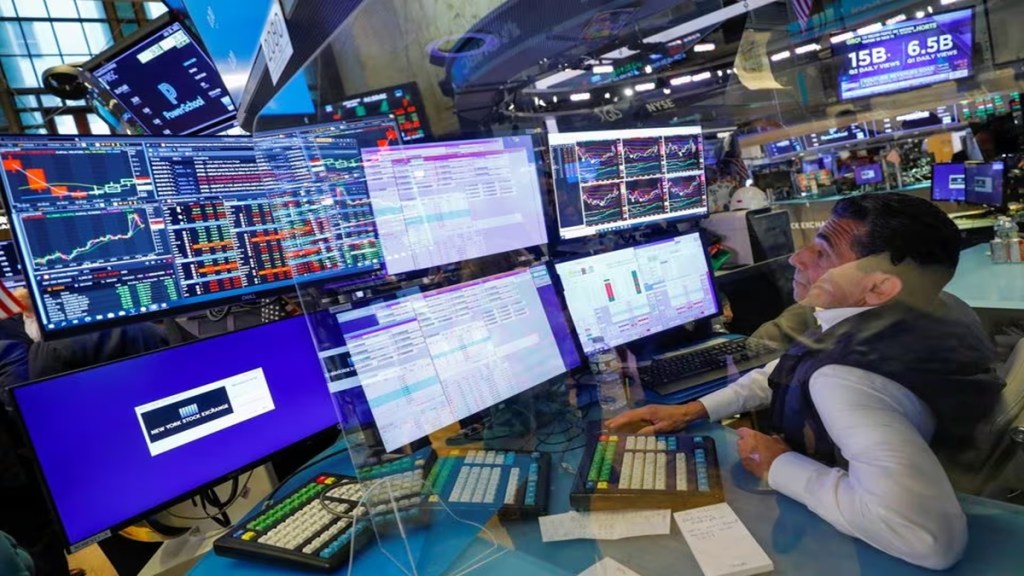May 29, Wednesday, appears to be a pretty tepid day after looking at US stock futures data. Nasdaq, Dow and S&P 500 futures were trading lower by around 0.5% on Wednesday. How the Nasdaq, Dow and S&P 500 open today and the indices end the trading day remains to be seen.
In the extended trade, American Airlines fell more than 6% after cutting its second-quarter sales forecast, while Robinhood rose 4% after unveiling a $1 billion share repurchase program.
In the pre-market session, Blue World Acquisition is up over 27%, Robinhood by 3.25%, Ooma by 17%, Marker Therapeutics by 14.5%. Meanwhile, Nvidia is down 0.5%, Alibaba ADR by 2.56%, GameStop down by 4%, AERWINS Technologies Inc is down 29%, American Airlines is lower by 7%.
The Nasdaq Composite set a fresh record high on Tuesday after closing at 17019. On Tuesday, the Nasdaq Composite increased 0.59%, led by an almost 7% increase in Nvidia. The S&P 500 rose 0.02%, but the Dow declined 0.55%, with Merck and Amgen falling 2.2% and 1.8%, respectively. Technology, energy, and communication services stocks outperformed the market, while industrials, healthcare, and financials lagged behind.
The focus is back on the US Fed and the decision on interest rates. While most investors look forward to the timing of the first rate cut, the recent statement from Minneapolis Federal Reserve President Kashkari that further rate hikes would not be ruled out in the event that inflationary pressures reappeared, will keep them further confused.
“Higher-for-longer interest rates are likely to remain major central banks’ main strategy for the rest of this year,” says Nigel Green, CEO, deVere Group, one of the world’s largest independent financial advisory and asset management organizations.
In the US, the Federal Reserve is facing an economy that is not cooling off as much as desired.
“Recent hawkish remarks from a Fed official have dampened market sentiment, reinforcing the belief of many analysts that rate cuts are off the table for this year. The Fed’s cautious approach is rooted in the need to ensure that inflationary pressures are firmly under control before considering any reduction in interest rates. This means investors should prepare for a prolonged period of elevated rates, which will impact various asset classes differently,” adds Green.
The Hang Seng fell 344.15 points, or 1.83%, to finish at 18,477.01 on Wednesday, weighed down by a drop in US futures following an extended climb in Treasury yields and hawkish statements on interest rates from a Fed speaker.
Markets fell to their lowest level in three weeks, despite the fact that the IMF revised up China’s 2024 and 2025 GDP growth forecasts following new policy measures.
Meanwhile, economists continued to consider the property industry as the most significant drag on the economy, pointing out that Beijing’s massive rescue package was unlikely to be sufficient. Adding to the slide was uncertainty ahead of the Chinese official PMI report Friday.


